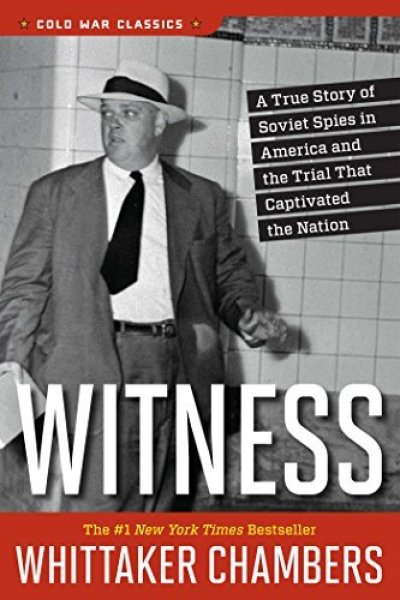Ex-communist spy Whittaker Chambers’ enduring witness
Despite turning 70 this year, ex-communist spy Whittaker Chambers’ autobiography Witness remains an enduring example of the power of the Christian witness in society. Recently, the Fund for American Studies held its annual Pumpkin Papers Irregulars Dinner in honor of Chambers. The dinner takes place every year to remember the Soviet defector’s work in exposing Alger Hiss as a communist spy and the revealing of the “pumpkin papers” that helped prove Hiss’ guilt.

Addresses this year were presented by Lee Edwards, distinguished fellow for the Heritage Foundation, and Daniel J. Mahoney, professor Emeritus at Assumption University, who discussed the nature of Chambers’ faith and philosophical beliefs. The attention to Chambers’ conversion and how it shaped his subsequent actions on the national stage presented an opportunity to reflect on why, 70 years later, his work still resonates with readers.
Chambers titled his book Witness, as he explained, not primarily because of his role in the Alger Hiss hearings but to reflect a more personal and spiritual purpose. He believed that his role was to be a witness both to his newfound Christian faith and the essential role Christianity had to play if the West was to continue in freedom, and he also believed that he was called to be a witness against the faith he had left — communism. He felt the need to witness to the horrors of communism, horrors in which he had taken part, and to make the public aware that it was not merely a competing economic system with capitalism.
One aspect of Witness that makes it steadfastly relevant is that, by his actions, Chambers was a unique example of what it meant to be a witness in his own time as well as one who manifested the character needed for those who would bear witness today. In explaining why the Communist Party was so successful in drawing people to its cause, Chambers wrote, “Their power, whose nature baffles the rest of the world, because in large measure the rest of the world has lost that power, is the power to hold convictions and to act on them. It is the same power that moves mountains; it is also an unfailing power to move men.” In the present moment, it is easy to be lacking in conviction, caving to the demands for toleration and affirmation of all choices whether they are destructive to individuals and society or not.
Chambers’ life is a reminder that it is not only essential to hold fast to truth but to act on it in the public square, even if it is unpopular. He also serves as a reminder that the Christian witness is not the absence of suffering but, quite often, suffering for Christ. The choice then is to trust that Christ is never far from those who suffer for Him. To witness is to love Him more than the acclaim and approval of society’s elite. Chambers calls the reader to remember that they must embrace suffering if they are called to it and that, in doing so, they follow Christ, who first suffered for them. Death to self is essential, as Chambers wrote, “each man hangs upon the cross of himself.”
The former communist spy did suffer the loss of friends as well as constant attacks from those in power, who were aligned with Alger Hiss. He also recognized, as he acknowledges in the introduction, that his actions had brought hardship and suffering on his own family. Yet, he continued in his witness, explaining why it was necessary, and acknowledging that they would have to choose for themselves how to respond to him and the witness that he gave. It is difficult to be rejected by friends and society; it is even more difficult to risk the rejection of one’s own family, but it is what Christ calls His followers to do.
Chambers’ steadfastness made him an indispensable witness in the 20th century both to the horrors of the atheistic communist system that he had left and to the Christian faith that he had come to embrace.
“A man is not primarily a witness against something. That is only incidental to the fact that he is a witness for something,” Chambers wrote. “A witness, in the sense that I am using the word, is a man whose life and faith are so completely one that when the challenge comes to step out and testify for his faith, he does so, disregarding all risks, accepting all consequences.”
This witness is still needed in the present century and Chambers’ life is an enduring example of holding to the faith. It is important for Christians today to remember who they witness for and embrace this role, recognizing it is a blessing to have the ultimate “something” for which they are privileged to witness.
Originally published at Juicy Ecumenism.
Sarah Diane Stewart is a Methodist laywoman from Parkersburg, WV who now resides in the Washington, D.C. region.





















